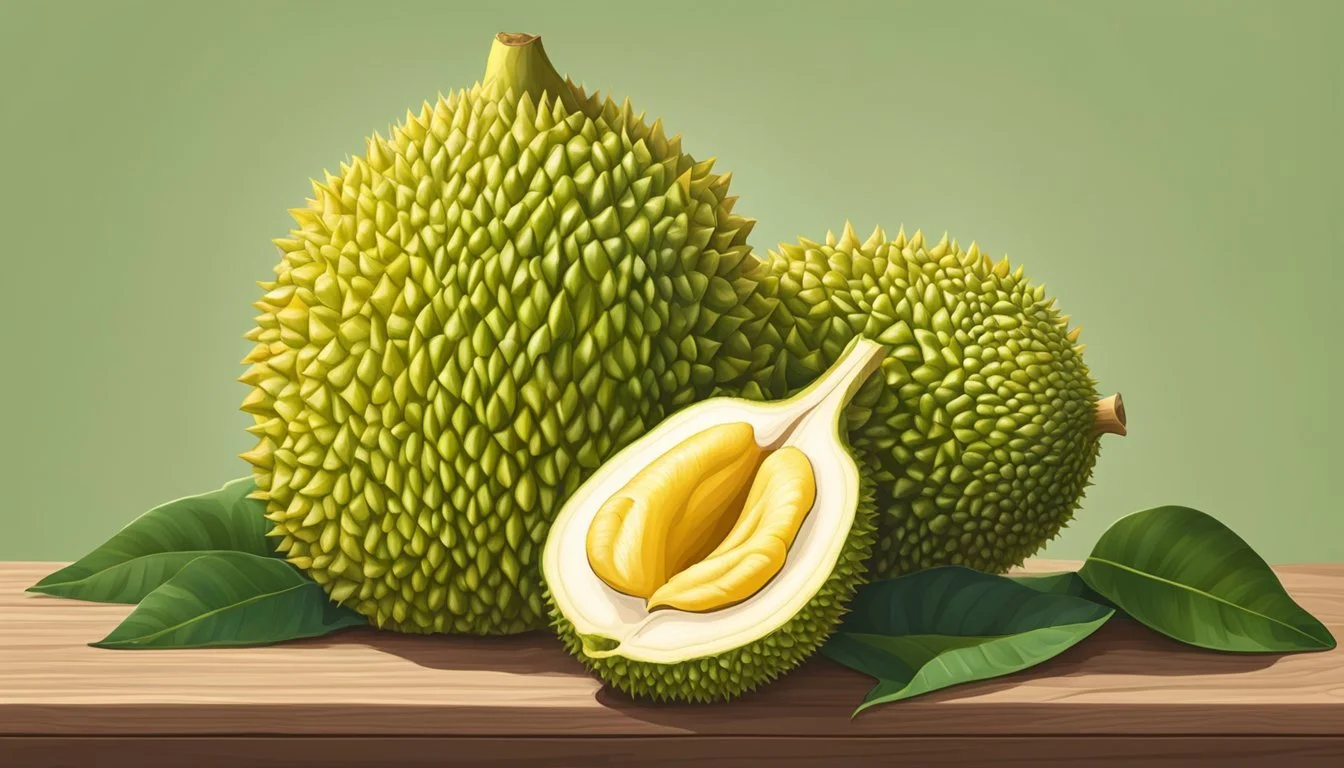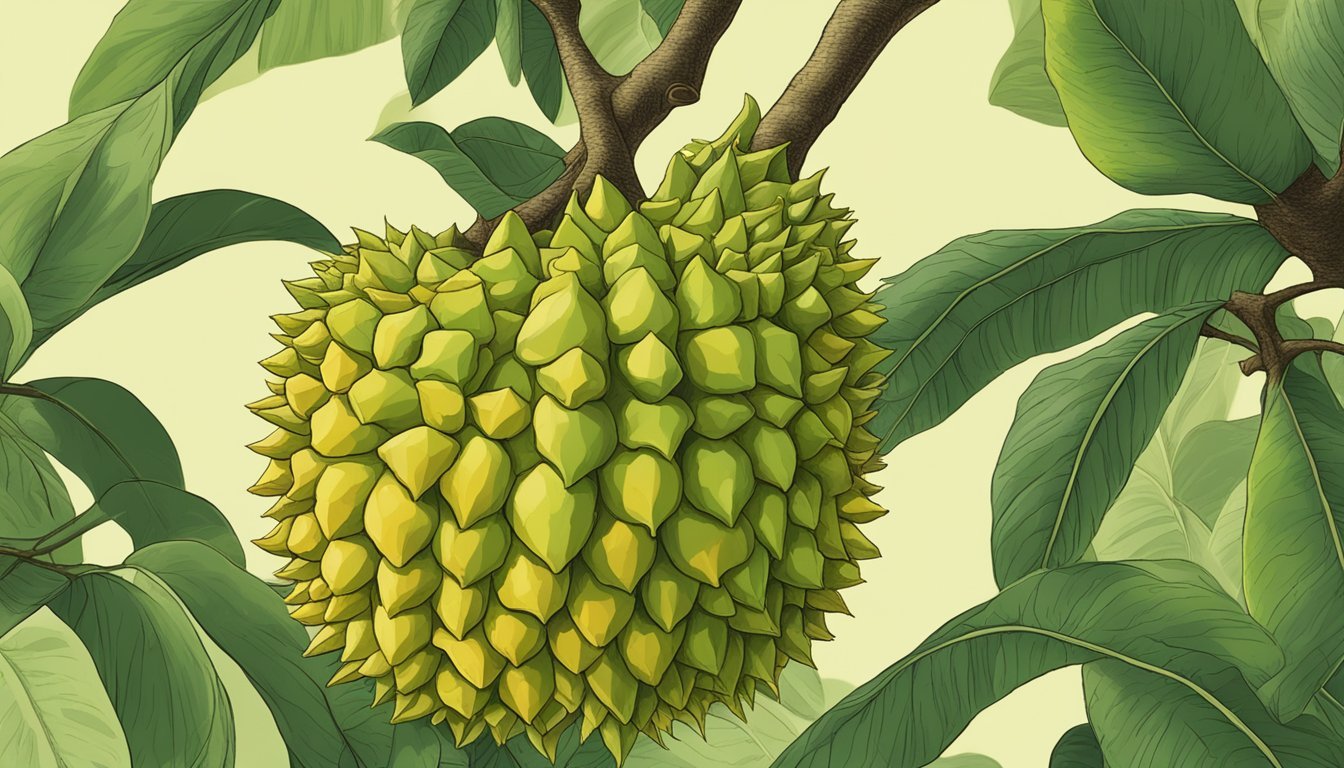Is Jackfruit Vegan?
Unveiling the Truth About This Tropical Fruit
Jackfruit is indeed a vegan food. It is a fruit that has gained significant attention in the vegan and vegetarian communities due to its meat-like texture when unripe, which makes it an excellent plant-based substitute for meat. Jackfruit grows in tropical regions and is the largest fruit that can be found on a tree, sometimes weighing up to 100 pounds. Not only is it versatile in its uses, but jackfruit also offers nutritional benefits, including a good source of dietary fiber and vitamin C.
When young and unripe, its flesh is starchy and fibrous, which is why it's often used as a meat alternative in various dishes. The fruit's ability to absorb flavors makes it particularly popular for savory recipes such as vegan pulled pork or chicken substitutes. As it ripens, jackfruit develops a sweet flavor and can be eaten raw or used in desserts, making it a multifaceted ingredient in vegan cuisine.
Despite being a fruit, its nutritional composition is different from other sweet fruits. In its unripe form, jackfruit provides a lower sugar content, which contributes to its versatility in savory dishes. The fruit does not offer as much protein as meat, but its texture and capacity to be seasoned with a range of spices and herbs allow it to stand as a centerpiece in vegan meals, highlighting it as a unique and valuable addition to a plant-based diet.
Understanding Jackfruit
Jackfruit is a unique tropical fruit renowned for its versatility in diets and potential environmental benefits. This section explores the origins, nutritional profile, varieties, and the environmental impact of jackfruit.
Origins and Cultural Significance
Jackfruit (Artocarpus heterophyllus) originates from the rainforests of India and Southeast Asia. Culturally significant, it has been a staple food source in these regions for centuries. It is the national fruit of Bangladesh and has a growing global presence due to its culinary versatility.
Nutritional Profile
Jackfruit is nutrient-dense, providing a substantial amount of dietary fiber, protein, vitamins, and minerals. A serving typically contains:
Calories: Low, making it suitable for a calorie-controlled diet.
Protein: Modest, but significant for a fruit.
Fiber: High, beneficial for digestive health.
Vitamin C: Present in high amounts, supports the immune system.
Potassium: Abundant, aids in blood pressure control.
Iron: Present, important for blood health.
The nutrient composition makes it an excellent choice for those seeking to increase their intake of whole-food, plant-based nutrients.
Jackfruit Varieties
It comes in various forms:
Ripe jackfruit: Sweet and used in desserts.
Green jackfruit: Unripe, used as a meat substitute due to its texture.
Young jackfruit: Often canned and favored by vegans for its meat-like consistency.
Fresh jackfruit: Can be consumed raw or cooked and is more syrupy when ripe.
Each variety offers distinct culinary uses, making jackfruit a versatile ingredient in various cuisines.
Environmental Impact
Jackfruit is gaining attention as an alternative to meat due to its potential positive environmental impact. It's well-suited to tropical climates, and its cultivation is considered sustainable because of its:
Efficiency: Requires minimal maintenance compared to other crops.
Adaptability: Thrives in hot climates, which could be advantageous in the context of climate change.
Sustainability: Serves as a robust crop that could contribute to food security.
Its ability to provide nutrition without the environmentally taxing inputs required for meat production positions jackfruit as an environmentally friendly choice in diets around the world.
Jackfruit as a Vegan Ingredient
Jackfruit's versatility as a plant-based meat substitute is celebrated in vegan cuisine for its remarkable texture that mimics meat, making it an exceptional choice for vegetarians and vegans alike.
Vegan Diet Fundamentals
A vegan diet excludes all animal products, focusing on plant-derived foods. Jackfruit fits perfectly within this regime, as it is a fruit that provides a meaty consistency, serving as a staple for those seeking vegetarian and vegan alternatives to meat.
Meat Substitutes and Comparisons
Compared to other meat substitutes like tofu, seitan, and tempeh (What wine goes well with tempeh?), jackfruit is unique for its stringy, pullable texture which closely mimics that of pulled pork. This property sets it apart from other alternatives, which may not offer the same meat-like texture. Unlike Beyond Meat products, which are processed to achieve a meaty flavor and texture, jackfruit is a natural, whole-food option.
Preparation and Cooking Techniques
Preparation of jackfruit as a meat substitute involves rinsing and shredding the flesh, commonly found canned in syrup, brine, or water. It should be drained and rinsed if preserved in syrup or brine to achieve a neutral base for a variety of recipes. Once prepared, it's often slow-cooked or pan-fried to resemble the texture and appearance of vegan pulled pork or vegan ribs.
Flavor and Spice Pairings
The neutral flavor of young jackfruit absorbs spices and marinades well, making it ideal for a variety of dishes. Common pairings include garlic, onions, cumin, ginger, and cilantro. A barbecue sauce or curry blend can transform it into a savory, spicily seasoned dish.
Common Vegan Recipes Featuring Jackfruit
Jackfruit has made its mark on the vegan kitchen with popular recipes like vegan pulled pork sandwiches, tacos, and curries. It's commonly slathered in barbecue sauce for a vegan twist on classic barbecue dishes.
Vegan jackfruit recipes often feature:
Pulled Jackfruit: Simulated pulled pork sandwiches
Tacos: Stuffed with spicy jackfruit mixtures
Curry: Incorporating the fruit for texture in rich, spiced sauces
Jackfruit in World Cuisines
Jackfruit, known for its versatility, is a staple in Asian cuisine and has become increasingly popular in Western dishes for its ability to mimic meat textures.
Asian Cooking and Jackfruit
In Asian cuisine, jackfruit is often incorporated into recipes such as curries. For example, in jackfruit curry, tender pieces of this fruit are cooked in a blend of aromatic spices and coconut milk, providing a hearty and flavorful dish. Additionally, sticky rice is sometimes served alongside to complete the meal. This combination underscores the fruit's ability to absorb and complement complex spice profiles.
Western Adaptations
Jackfruit's versatility shines in Western cuisine as a plant-based substitute for meat. Vegan versions of traditional dishes utilize pulled jackfruit to replicate the texture and taste of shredded meat. Jackfruit tacos and jackfruit carnitas are excellent examples of this adaptation, juxtaposing the fruit's neutral canvas against bold Mexican seasonings. Even more creative interpretations, like vegan jackfruit crab cakes, boast a meaty texture, offering a compassionate alternative for classic comfort food.
Fusion and Innovative Dishes
The fusion of different culinary traditions has led to innovative dishes featuring jackfruit. Inventive chefs often pair the fruit with unconventional ingredients, creating unique stews and pastas. Jackfruit chili marries the fruit with hearty beans and spices, emerging as a new vegan favorite. These dishes not only challenge traditional meat-centric views but also expand the notion of what can be considered vegan meat. As chefs continue to experiment, jackfruit's role in global cuisine is poised for future evolution.
Shopping and Storage Tips
When it comes to purchasing and storing jackfruit, understanding the distinctions between fresh and canned varieties, as well as recognizing the various stages of ripeness, is essential for optimal flavor and longevity.
Selecting and Buying Jackfruit
When shopping for jackfruit, one can typically find it in two forms: fresh and canned. The selection process differs based on the intended use. Fresh jackfruit is available in most grocery stores, especially those that cater to Asian or tropical produce.
Young Green Jackfruit: Best used for savory dishes due to its meaty texture. Look for firm fruits with green skin.
Ripe Jackfruit: Suitable for sweet applications, it has a distinctive yellow hue and should yield slightly under pressure.
For those seeking convenience, canned jackfruit is an option. It's often stored in brine or syrup. Those aiming for a meat substitute should opt for jackfruit canned in brine or water; jackfruit in syrup is best for desserts.
Storing and Preparing Jackfruit
Once purchased, proper storage is key to maintaining the jackfruit's quality.
Fresh Jackfruit: Store at room temperature until ripe. Once ripe, it can be refrigerated for up to a week; the flesh should be kept in an airtight container.
Canned Jackfruit: Unopened cans should be stored in a cool, dry place. After opening, transfer any unused jackfruit to a container, cover with its liquid (brine or syrup), and refrigerate for up to a week.
For green jackfruit, preparation usually involves rinsing and cutting. The core and seeds must be removed, the latter of which can be cooked separately. Ripe jackfruit simply requires peeling and segmenting; the flesh can be eaten raw or used in recipes.
Health Considerations and Dietary Importance
The ingestion of jackfruit, a nutrient-dense fruit, brings multiple health benefits and fits well within specialized diets, such as vegan or vegetarian plans. However, individuals need to be aware of certain dietary considerations including potential allergies.
Health Benefits of Jackfruit
Jackfruit is a nutritious fruit rich in dietary fiber, vitamins, and minerals. It offers an impressive amount of vitamin C, which is crucial for immune function and collagen production. The fruit also provides a substantial quantity of vitamin B6, niacin, and flavonoids, all of which contribute to overall health. B6 is essential for metabolism and brain health, while niacin supports skin health and cholesterol levels. Flavonoids act as antioxidants, neutralizing harmful free radicals in the body.
Fiber: Aids in healthy digestion
Vitamin B6: Supports metabolism and cognitive function
Niacin: Important for skin health and cholesterol management
Flavonoids: Offer antioxidant properties
Jackfruit in Special Diets
Jackfruit's fibrous texture enables it to mimic the consistency of meat, making it a popular substitute in vegan meal and vegetarian cuisines. Being naturally gluten-free, it is also a valuable food product for those with celiac disease or gluten intolerance. As a plant-based source of protein, it fortifies the diets of those abstaining from animal products and enhances the variety of nutrients they receive.
Vegan/Vegetarian: Acts as a meat substitute
Gluten-Free: Suitable for those with gluten intolerances
Potential Allergies and Intolerances
Though uncommon, some individuals may experience allergies to jackfruit. The symptoms can range from mild oral allergy syndrome to more severe reactions. It is essential for individuals with known food allergies to introduce jackfruit cautiously into their diet and to consult health professionals if they suspect an allergic reaction.
Mild Symptoms: Oral allergy syndrome
Severe Reactions: May require immediate medical attention
It is clear that jackfruit can be a beneficial addition to various diets, offering both health advantages and versatility. Those with allergies should proceed with care to ensure it is a safe choice for their individual health needs.






